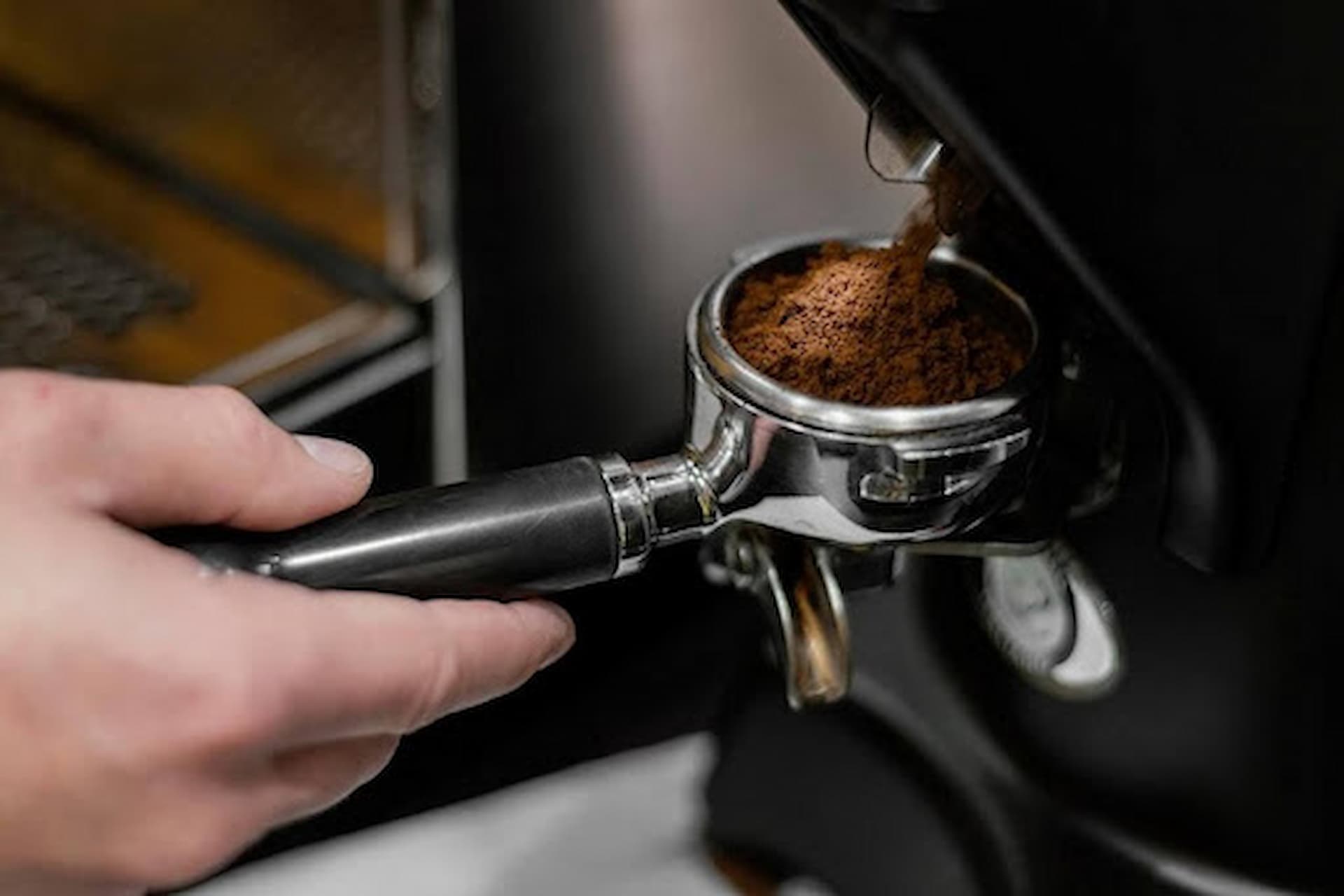Is a bean-to-cup coffee machine the missing piece to your perfect morning brew? Dive into the pros and cons and what to look for to decide if it’s right for you.
For coffee enthusiasts, few things can compare to the satisfaction of freshly brewed coffee made from whole beans. The rich aroma, complex flavours, and unmatched freshness of coffee made from freshly ground beans can elevate your morning routine from ordinary to exceptional. But investing in a high-quality bean-to-cup coffee machine for home use isn’t a minor decision. These machines come with a higher price tag than traditional coffee makers, leaving many home brewers wondering if they are worth the cost. This article will delve into the key features, benefits, and potential downsides of bean-to-cup coffee machines to help you decide if this investment suits your coffee routine.
What is a Bean-to-Cup Coffee Machine?
A bean-to-cup coffee machine grinds whole coffee beans on demand and immediately brews them, ensuring maximum freshness and flavour. Unlike traditional coffee makers, these machines automate the process from grinding to brewing, resulting in a high-quality, barista-style cup of coffee at the push of a button. Some models even offer milk-frothing options, perfect for latte or cappuccino lovers.
Key Features
- Built-in Grinder: A powerful grinder is integrated into the machine, which grinds the beans just before brewing.
- Automation: Offers a hands-off brewing experience with customisable strength, temperature, and cup sizes.
- Milk Frother (Optional): Some machines have built-in frothers for making special drinks like lattes and cappuccinos.
This streamlined process eliminates the need for a separate grinder, simplifies the coffee-making process, and gives you complete control over your brew.
1. The Cost of Bean-to-Cup Coffee Machines: Is the Price Justified?
The price tag of a bean-to-cup coffee machine can be intimidating, with models typically ranging from £300 to over £1,500. While this is a substantial investment, there are several reasons why it may be worth the cost:
- High-Quality Coffee Experience: Bean-to-cup machines deliver café-level quality, often saving users from spending on daily coffee runs.
- Longevity and Durability: Premium models are built to last, often serving up quality coffee for years, making them a more economical choice over time.
- Customisation: Advanced features allow you to customise each cup to your preference, adding value for coffee connoisseurs.
For avid coffee drinkers, the cost may be offset by the ability to create barista-quality coffee at home, eliminating the need for daily visits to coffee shops.
2. How Does a Bean-to-Cup Machine Improve Coffee Quality?
The quality of coffee brewed by a bean-to-cup machine often surpasses that of drip or pod coffee makers, mainly due to the grinding process. Freshly ground coffee releases flavour and aroma, creating a richer, more complex taste.
Quality Enhancements
- Freshness: Beans are ground on demand, maximising flavour.
- Adjustable Grind Sizes: Many machines allow you to adjust grind size, which affects the extraction and flavour profile.
- Temperature Control: Precise water temperature ensures optimal extraction, enhancing taste and aroma.
Statistics show that freshly ground coffee retains up to 80% more aroma and flavour compounds than pre-ground coffee. For those who value top-tier coffee, the bean-to-cup process can significantly enhance the overall experience.
3. Convenience: The Main Selling Point of Bean-to-Cup Machines
Bean to cup coffee machines bring convenience to the forefront of home brewing. Users can prepare everything from an espresso to a cappuccino without manual grinding, tamping, or timing with one-touch operations.
Convenience Factors
- Automatic Operation: Brew coffee with a single press, suitable for busy mornings.
- Quick Cleaning Cycles: Many machines have self-cleaning functions, minimising maintenance time.
- Personalised Presets: Save your preferred settings for a consistent experience every time.
A bean-to-cup machine’s automation and ease of use are game-changers for home brewers who enjoy high-quality coffee without spending too much time on preparation.
4. Customisation Options: Making Coffee Just the Way You Like It
Most bean-to-cup coffee machines have customisable features that allow users to control their coffee’s strength, temperature, and size. This level of customisation can transform the coffee experience, allowing users to make everything from a robust espresso to a mild Americano.
Customisation Features
- Adjustable Grind Levels: Tailor the grind to suit your preferred brewing method.
- Brewing Temperature and Strength: Control how bold or mild your coffee tastes.
- Milk Frothing Control: Create different textures for lattes, cappuccinos, and macchiatos.
These options enhance the coffee experience and make it versatile enough to cater to different tastes and preferences within a household.
5. Maintenance and Cleaning: What to Expect with Bean-to-Cup Machines
One potential drawback of bean-to-cup machines is the required maintenance. While most machines have automated cleaning cycles, keeping them in top condition requires regular cleaning and descaling.
Maintenance Requirements
- Self-Cleaning Cycles: Some models clean the grinder and brewing components after each use.
- Descaling Needs: Regular descaling prevents mineral buildup, ensuring long-term performance.
- Removable Parts: Machines with removable parts are easier to clean manually, prolonging machine life.
Regular maintenance may seem time-consuming, but it’s crucial for preserving the machine’s quality and functionality over time. Manufacturers recommend descaling every three to six months, depending on the machine and water hardness.
6. Long-Term Cost Benefits: How Bean-to-Cup Machines Save Money Over Time
While the initial cost of a bean-to-cup coffee machine is high, it can save money in the long run for regular coffee drinkers. Let’s break down the potential savings over time.
Cost Savings Breakdown
- Reduced Café Visits: An average coffee shop latte costs around £4. The savings can be significant over a year for someone buying one daily.
- Bulk Coffee Beans: Buying whole beans is generally cheaper than purchasing pre-ground coffee or pods.
- Durability of Investment: High-end models often last several years, spreading the cost over a more extended period.
For a coffee lover who typically buys coffee from a café, a bean-to-cup machine can pay for itself within a year or two, making it an economically smart choice.
7. Are Bean-to-Cup Machines Environmentally Friendly?
Bean to cup coffee machines are also a more environmentally conscious choice, especially compared to single-use coffee pods. Single-serve coffee makers create significant plastic and aluminium waste, while bean-to-cup machines help minimise this impact.
Environmental Benefits
- Reduced Waste: No need for disposable coffee pods or filters.
- Reusable Parts: The machines use permanent filters, grinders, and milk frothers.
- Energy Efficiency: Some models feature energy-saving modes to reduce power consumption.
For eco-conscious consumers, investing in a bean-to-cup machine means reducing plastic waste and embracing a more sustainable coffee brewing method.
Conclusion
Investing in a bean-to-cup coffee machine is a personal decision that depends on your habits, budget, and appreciation for high-quality coffee. If you’re a daily coffee drinker who values convenience, customisation, and café-quality coffee at home, a bean-to-cup machine can be a worthwhile addition to your kitchen. Not only do these machines deliver an enhanced coffee experience, but they can also save you money in the long run while offering a more eco-friendly alternative to single-use pods.
For coffee lovers ready to take their home brewing to the next level, a bean-to-cup machine represents an investment in flavour, freshness, and quality, making every cup worth savouring.




